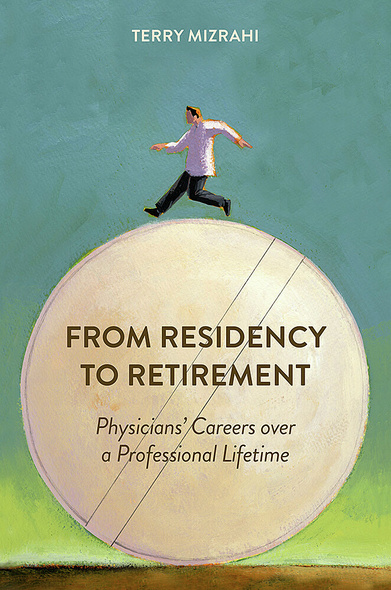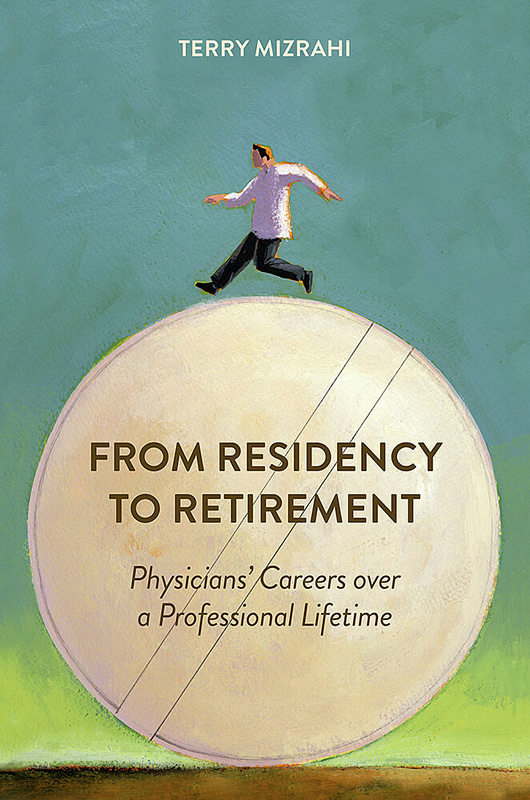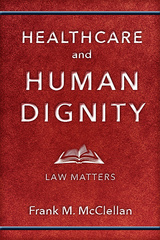From Residency to Retirement
Physicians' Careers over a Professional Lifetime
Rutgers University Press
From Residency to Retirement tells the stories of twenty American doctors over the last half century, which saw a period of continuous, turbulent, and transformative changes to the U.S. health care system. The cohort’s experiences are reflective of the generation of physicians who came of age as presidents Carter and Reagan began to focus on costs and benefits of health services.
Mizrahi observed and interviewed these physicians in six timeframes ending in 2016. Beginning with medical school in the mid-1970s, these physicians reveal the myriad fluctuations and uncertainties in their professional practice, working conditions, collegial relationships, and patient interactions. In their own words, they provide a “view from the front lines” both in academic and community settings. They disclose the satisfactions and strains in coping with macro policies enacted by government and insurance companies over their career trajectory.
They describe their residency in internal medicine in a large southern urban medical center as a “siege mentality” which lessened as they began their careers, in Getting Rid of Patients, the title of Mizrahi’s first book (1986). As these doctors moved on in their professional lives more of their experiences were discussed in terms of dissatisfaction with financial remuneration, emotional gratification, and intellectual fulfillment. Such moments of career frustration, however, were also interspersed with moments of satisfaction at different stages of their medical careers. Particularly revealing was whether they were optimistic about the future at each stage of their career and whether they would recommend a medical career to their children. Mizrahi's subjects also divulge their private feelings of disillusionment and fear of failure given the malpractice epidemic and lawsuits threatened or actually brought against so many doctors. Mizrahi’s work, covering almost fifty years, provides rarely viewed insights into the lives of physicians over a professional life span.
Mizrahi observed and interviewed these physicians in six timeframes ending in 2016. Beginning with medical school in the mid-1970s, these physicians reveal the myriad fluctuations and uncertainties in their professional practice, working conditions, collegial relationships, and patient interactions. In their own words, they provide a “view from the front lines” both in academic and community settings. They disclose the satisfactions and strains in coping with macro policies enacted by government and insurance companies over their career trajectory.
They describe their residency in internal medicine in a large southern urban medical center as a “siege mentality” which lessened as they began their careers, in Getting Rid of Patients, the title of Mizrahi’s first book (1986). As these doctors moved on in their professional lives more of their experiences were discussed in terms of dissatisfaction with financial remuneration, emotional gratification, and intellectual fulfillment. Such moments of career frustration, however, were also interspersed with moments of satisfaction at different stages of their medical careers. Particularly revealing was whether they were optimistic about the future at each stage of their career and whether they would recommend a medical career to their children. Mizrahi's subjects also divulge their private feelings of disillusionment and fear of failure given the malpractice epidemic and lawsuits threatened or actually brought against so many doctors. Mizrahi’s work, covering almost fifty years, provides rarely viewed insights into the lives of physicians over a professional life span.
This is a wonderful, unique book because it spans almost forty years in the careers of a group of physicians. It deals with important questions about aspects of career satisfaction from interpersonal relationships to health care reform. As a physician still in clinical practice, whose career evolved during the same period covered by these interviews, the book evoked some deep reflection on my own career.
Drawing on in-depth interviews of physicians that span their 35-year careers, Terry Mizrahi provides a unique, insightful account of early, mid-, and late-stage achievements, frustrations, and challenges from the 1980s through the second decade of the 21st century. Well organized and clearly written, this book will interest families, professionals, sociologists, and educators.
Mizrahi's compelling portrait of physicians' career trajectories speaks to the failure of American health policy. Buffeted by waves of policy changes that failed to address key problems, many practitioners ended their careers profoundly dissatisfied, lamenting encroachments on their autonomy and feeling less valued by society.
From Residency to Retirement is a unique, engaging, and very personal study of a group of over twenty physicians. Mizrahi’s work, notable for its longitudinal depth, personal information, and relation to the enormity of changes in the medical profession over the period, includes the cohort's struggles, professional and personal, all in the context of patient care and practices during the study period. It is unique, well-written, important, and timely. I highly recommend it.'
From the War on Poverty to Obamacare, health activist and scholar Terry Mizrahi explores the careers of a cohort of physicians trained together in internal medicine, as they navigated our continuously changing health system. Her powerful new insights shed important light on the very human dimensions of the practice of medicine during its dramatic transformation over the last forty years.
In this incredible followup to her now classic work, Getting Rid of Patients, Mizrahi has provided us an incredible gift: a 'follow-up' on this cohort as they navigated their own lives, and the vast changes in medical practice that have overtaken them. It should give every young student aspiring to be a physician pause, as they think about entering medicine as a profession. They may—or may not—know what they are getting into.
Mizrahi’s latest book can be read alone or as a wonderfully informative sequel to Getting Rid of Patients, her earlier exploration of the career journeys of White male physicians. From Residency to Retirement begins with many of these same men 40+ years later sharing their stories. Through these narratives we learn how, over these years, these doctors and the medical profession have endured and adapted to an ever-changing often tumultuous environment.
TERRY MIZRAHI is a sociologist and a social worker. She has been a professor at the Silberman School of Social Work at Hunter College of the City University of New York since 1980. She is the author of dozens of scholarly and professional articles and five books on health policy and practice; community organizing; interdisciplinary and interprofessional collaboration; and social work-physician relationships. Her first book, Getting Rid of Patients: Contradictions in the Socialization of Physician (Rutgers University Press) is the predecessor to From Residency to Retirement.
1 Introduction
2 Meet the Doctors: Career Choices in Their Own Voices
3 Satisfaction and Strains: The Ups and Downs of Being a Doctor, Part I (Early to Mid-Career)
4 Satisfaction and Strains: The Ups and Downs of Being a Doctor, Part II (Mid-Career to Retirement)
5 “Speaking of Their Own”: Relationships with Peers, Partners, and Protégés
6 Mistakes and Malpractice: The Bane of Physicians
7 The Physicians on Health Regulations, Reimbursement, and Reform
8 Vulnerability from Within: Hidden Revelations about Disillusionment, Cynicism, Fear of Failure, and Self-Doubt
9 The Personal and the Professional: The Interaction between Private Lives and Public Postures
10 Physicians’ Happiest and Unhappiest Times, and Their Wishes and Misses throughout Their Careers
11 Conclusion
Acknowledgments
Notes
References
Index
2 Meet the Doctors: Career Choices in Their Own Voices
3 Satisfaction and Strains: The Ups and Downs of Being a Doctor, Part I (Early to Mid-Career)
4 Satisfaction and Strains: The Ups and Downs of Being a Doctor, Part II (Mid-Career to Retirement)
5 “Speaking of Their Own”: Relationships with Peers, Partners, and Protégés
6 Mistakes and Malpractice: The Bane of Physicians
7 The Physicians on Health Regulations, Reimbursement, and Reform
8 Vulnerability from Within: Hidden Revelations about Disillusionment, Cynicism, Fear of Failure, and Self-Doubt
9 The Personal and the Professional: The Interaction between Private Lives and Public Postures
10 Physicians’ Happiest and Unhappiest Times, and Their Wishes and Misses throughout Their Careers
11 Conclusion
Acknowledgments
Notes
References
Index









